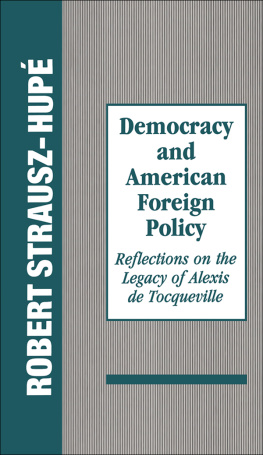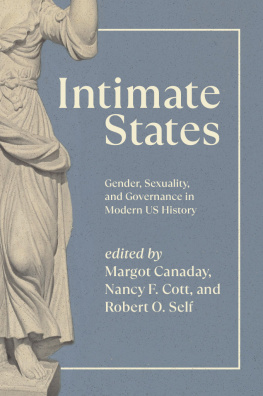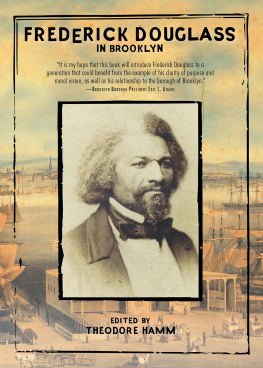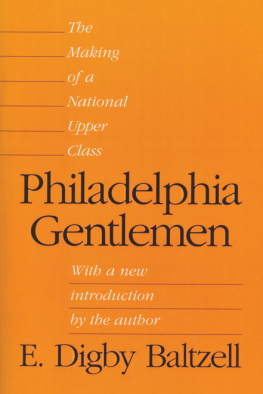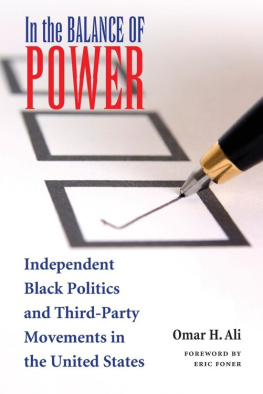Published 1990 by Transaction Publishers
Published 2017 by Routledge
2 Park Square, Milton Park, Abingdon, Oxon 0X14 4RN
711 Third Avenue, New York, NY 10017, USA
Routledge is an imprint of the Taylor & Francis Group, an informa business
New material this edition copyright 1990 by Taylor & Francis.
All rights reserved. No part of this book may be reprinted or reproduced or utilised in any form or by any electronic, mechanical, or other means, now known or hereafter invented, including photocopying and recording, or in any information storage or retrieval system, without permission in writing from the publishers.
Notice:
Product or corporate names may be trademarks or registered trademarks, and are used only for identification and explanation without intent to infringe.
Library of Congress Catalog Number: 89-30494
Library of Congress Cataloging-in-Publication Data
Pessen, Edward, 1920
[Riches, class, and power before the Civil War]
Riches, class and power: America before the Civil War/Edward Pessen.
p. cm.
Reprint. Originally published: Riches, class, and power before the Civil War.
Lexington Mass.: Heath, 1973.
Bibliography: p.
Includes index.
ISBN 0-88738-806-X
1. WealthUnited StatesHistory19th century. 2. Social mobility United StatesHistory19th century. 3. Social classesUnited States History19th century. I. Title.
[HC110.W4P47 1989]
305.5'23'09730903dc20
89-30494
CIP
ISBN 13: 978-0-88738-806-4 (pbk)
Introduction to the Transaction Edition
When the original version of this book was published sixteen years ago, Alexis de Tocquevilles image of an egalitarian America was taken as gospel by most American historians in their treatments of the United States during the second quarter of the nineteenth century. No book compared with Tocquevilles Democracy in America (part I published in 1835, part II in 1840) in its influence on the thinking of American scholars and public alike as to the nature of early nineteenth century American society.
In Tocquevilles social portrait, a general equality of condition was the central feature of American life. According to the brilliant young French aristocrat, there were no great fortunes in this youthful and vigorous nation because wealth was distributed almost equally among Americans. Blacks ands ome recently arrived Irish immigrants were the only ones not partaking of the cornucopia.
The rich in America were rich only in a manner of speaking, their fortunes supposedly not comparing in magnitude to those that had been accumulated by great wealthholders in Europe. Nor did wealthy Americans long hold on to their riches. Flux reigned in this kaleidoscopic milieu where men swiftly made, lost, and regained their fortunes in amazingly brief time. In Henry Clays catchy phrase, the rich in America were self-made men. In Tocquevilles memorable words, the American rich had felt the sting of want. Social classes or clusters of families whose wealth, standing, and influence set them apart from others did exist in America as elsewhere. But in the United States pictured by Tocqueville, class barriers were not firmly in place, class lines were easily and regularly breached, a democractic social mingling was the norm. Instead of the domination of society by the wealthy elites that ruled the Old World, commoners lorded over the New World. A tyranny of the majority prevailed in the United States, said Tocqueville. The people ruled over America, he observed, as does the Deity over the universe. And these were the words of a staunch Catholic.
American historians who might quarrel among themselves over the relative merits of Andrew Jackson and Daniel Webster or about the validity of Turners frontier thesis, which explained American democracy and values as a byproduct of the nations moving western border, were in agreement that the United States before the Civil War was indeed an egalitarian society. Their chapters on social history (in their books of a generation ago and earlier, focusing as they typically did on national politics) were entitled, The Era of the Common Man, The Rise of Tom, Dick, and Harry, The Age of Equality, or other rubrics of similar character.
Not that acceptance of the egalitarian model was unanimous. A few studies pointed to pockets of poverty amidst the alleged plenty. Students of the antebellum South had to know that not only enslaved blacks but many free, poor whites were denied power, prestige, and the good things of life. My 1969 book,Jacksonian America: Society, Personality, and Politics, observed that the egalitarian version of American society rested on very little evidence. The sight of one prisoner shaking hands with a warden was enough to convince Tocqueville that his informants were right in telling him that in the United States, one mans son was as good as any others. The absence of beggars on the streets convinced other visitors that poverty was absent here. That the wealthiest man in America, John Jacob Astor, was the child of German parents of humble rank and modest circumstances was taken as proof that the race in America was won not by the well born, but by the hardworking and able, whatever their beginnings. In other words, the egalitarian version of pre-Civil War America was based not on substantial evidence but, rather, on snippets of evidence that were treated by Tocqueville and by most of his contemporaries, whether Americans or European visitors, as though they illuminated the society as a whole.
Tocqueville, whose best friends conceded that he had little interest in mere facts, simply concluded that a political democracy such as the United States had necessarily to be a social and economic democracy. His powers of deduction led him inevitably to the conclusion that the scattered examples of equality that he chanced to glimpse replicated the equality that ostensibly permeated the entire society. Boastful Americans, certain that their youthful society was superior to decadent Europes, were delighted to have their prideful feelings confirmed by a learned and prestigious source. Scholars, disinclined to challenge a theory so long in place and so consoling to believers in American exceptionalism, had convinced themselves that further research or additional evidence was hardly necessary to confirm what seemed to them the obviousthat the dynamic, democratic, pre-industrial United States was the closest approximation to a land of equality that the Western world had yet produced.
As a congenital skeptic, I remained unconvinced. Goaded by a colleague who, while applauding my observations in Jacksonian America on the thin evidentiary basis for the egalitarian thesis, nevertheless reminded me that I had not unearthed substantial evidence of my own, I decided to dig up that evidence and once and for all find out whether the facts of American life sustained Tocquevilles conclusions.


